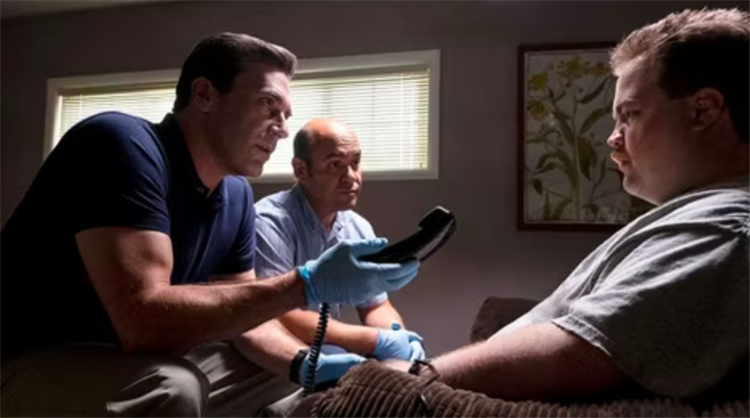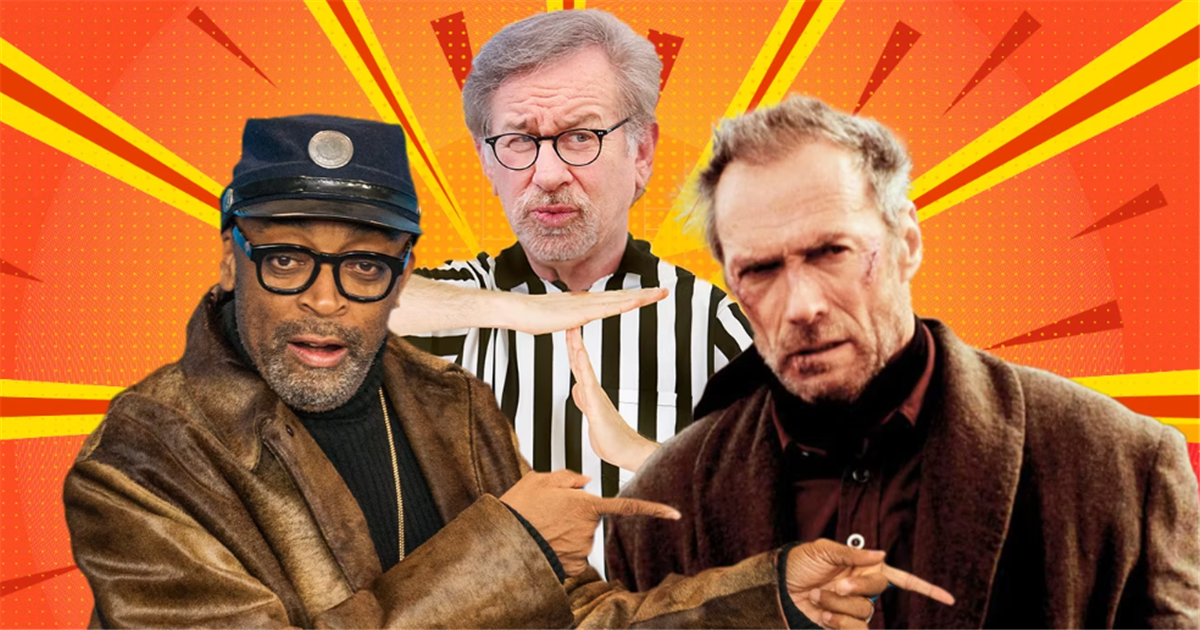As both an actor and star, Clint Eastwood managed to change the trajectory of Western cinema forever and is largely responsible for the genre’s rejuvenation in the late 1960s. Eastwood would soon step behind the camera to direct classic Westerns like Pale Rider and Unforgiven, but many of his greatest directorial efforts are non-Western films. Eastwood clearly has a reverence for significant moments in America’s past and has helmed biographical films like Flags of Our Fathers, J. Edgar, American Sniper, and Sully that framed historical events as heroic and empowering stories. Unfortunately, Eastwood’s personal politics are often detrimental to the narrative cohesion of his projects. Despite being based on an inspiring true story, Richard Jewell exposes some of Eastwood’s biggest missteps as a director.
What Is ‘Richard Jewell’ About?
Like many of Eastwood’s most recent films, Richard Jewell aims to go “further from the headlines” in tackling a tragic event in America’s recent history. The film examines the aftermath of the 1996 Centennial Olympic Park bombing, in which an explosive device detonated in a crowd during the Summer Olympic Games in Atlanta, Georgia resulted in an intense FBI investigation. The attack resulted in the death of an innocent civilian, but many lives were saved by the security guard Richard Jewell (Paul Walter Hauser), who successfully directed the crowd to safety. Unfortunately, Jewell’s proximity to the attack and knowledge of the Centennial Park infrastructure made him a primary target for the investigation.
While the circumstances surrounding the attack had the potential to be a great thriller, a majority of Richard Jewell’s runtime is dominated by the subsequent investigation into the real culprit. After Jewell’s willingness to testify about what he witnessed ends up planting him under further suspicion, he hires attorney G. Watson Bryant Jr. (Sam Rockwell) to defend him; despite knowing that he should keep his mouth shut, Jewell can’t help but open up to the investigators in hopes of helping solve the case. Although his mother, Bobi (Kathy Bates), begs for him to stay silent, Jewell is convinced that he will achieve his dream of becoming a “real American hero” if he complies with all of the FBI’s mandates.

Despite a fantastic performance from Hauser, Richard Jewell is too idealized in its depiction of the main character. Eastwood is so quick to herald Jewell as a misunderstood underdog that there’s never any depth to the character. While his continued efforts to aid in the investigation should have spoken to his unflinching honor, they end up feeling irritating and repetitive given the procedural nature in which Eastwood characterizes the courtroom scenes. While Eastwood’s recent historical films like Sully and American Sniper succeeded by taking a non-linear approach to their narratives, the straightforward structure of Richard Jewell results in a film that lacks any real suspense. Given how dominant the real news story was, there’s little new information that Eastwood can reveal to those that already remember the cycle playing out in real-time.
‘Richard Jewell’ Grossly Mishandles Its Depiction of Kathy Scruggs
Despite the film admittedly doing a good job of identifying the strength of Jewell’s character, Richard Jewell makes a disastrous miscalculation in its depiction of journalism. Once Jewell finds himself under an official FBI investigation, the film focuses on how the Atlanta-Journal Constitution writer Kathy Scruggs (Olivia Wilde) grew utterly convinced of his guilt and lobbied a series of defamatory stories in his direction. While an authentic depiction of journalism may have given a more well-rounded depiction of the situation, Eastwood goes to extreme lengths to show that Scruggs’ stories are written out of personal vindication, and not any desire to see the truth uncovered. It’s a grossly disrespectful deception of crime reporting that makes Richard Jewell particularly uncomfortable to watch given the state of America’s relationship with post-truth journalism.
If the slanderous portrayal of the media wasn’t enough, Richard Jewell conforms to sexist stereotypes in its depiction of Scruggs. It’s heavily suggested that Scruggs traded sexual favors with her interviewees to gain insights into her stories; it’s also implied that she is in the midst of a physical relationship with FBI Agent Tom Shaw (Jon Hamm), who is leading the investigation into Jewell and the bombing. It’s unfortunate to see such an antiquated and sexist portrayal of a real-life figure in a film dealing with such sensitive subject material, especially from a filmmaker like Eastwood who should have known better. That disappointment is only exacerbated due to Wilde’s casting; despite the polarizing reception to her directorial efforts, she is nonetheless a very talented actress who could’ve given a better performance had the material been stronger.

The over-the-top depiction of Scruggs creates dramatic inertia, as Richard Jewell barely scratches the surface when detailing the role the FBI played in the case. Although Hamm gives an effectively sinister performance, he, unfortunately, has to deal with the same shallowly written material that Wilde does. While there is at least a brief moment towards the third act of the film that suggests that Scruggs came to regret her role in the scandal, Hamm feels like a mustache-twirling villain taken out of a 1990s action movie and not an earnest portrayal of a real person.
‘Richard Jewell’ Doesn’t Do Its Subjects or the Story Justice
What’s most disappointing about the film is that there are moments of promise sprinkled throughout Richard Jewell. Despite the downbeat nature of the true story, Eastwood inserts some welcome moments of levity between Rockwell and Hauser that make the film feel more authentic. Although her role is very much in the “generic mother” archetype, Bates’ powerful performance earned her a well-deserved Academy Award nomination for Best Supporting Actress. But, ultimately, may not have been the best director for Richard Jewell despite clearly having a passion for the material. His quickness to simplify the situation resulted in a film that didn’t do its subjects any justice.
